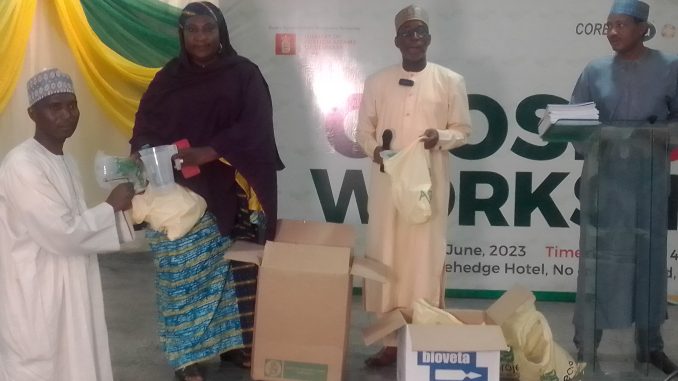The Milk Value Chain Foundation has trained 64 dairy farmers from 15 clusters across Kaduna state on sustainable optimization of the production of quality cow milk in the state.
The Milky Way Project, supported by the Danish Government, Arla Farms and Milk Value Chain Foundation is a five-year project, which started in Kaduna state in 2017 and ended in June 2023.
The Project, according to the organisers, has achieved 1,000% increase in milk production, 200% percent increment in the income of milk producers and the adoption of new technologies by the stakeholders.
A close-out training workshop took place in Kaduna to consolidate on the gains of the project and prepare for life after the project.
Speaking on the essence of the workshop, the Chief Executive Officer, Milk Value Chain Foundation, Dr. Ishaq Bello, said the farmers were drawn from Damau, Kubau, Gadan Gaya, Zaria, Roghoyi, Kurmin Sata, Kurmin and Kachia among others.
“We are here for a Close Out Workshop that is holding at the end of a project, to discuss the achievements, challenges and the way forward. We brought in 64 farmers from various clusters in 15 communities that we are working with directly.
“The workshop is for our direct beneficiaries and the core project partners to discuss the achievements of the Milky Way Partnership Project in the different areas. In training that we have done severally and the effects, the outcomes of those training because when you train, the outcomes are very important. We have trained them on dairy business, dairy and milk hygiene, cooperative society formation, animal health, pasture production, and feeding.
“We have seen great improvements in the adoption of the technologies that we taught them; issues of farmers going into pasture production, farmers contributing money, farmers selling their inferior livestock to hire a better breed on their own. We have seen a great improvement in their livelihood. We discussed the key achievements of our partners like the Federal Ministry of Agriculture and Rural Development that constructed roads to these communities at least three of them have asphalt roads.
“We also highlighted the benefits of collaborations, we have partners that provide boreholes and animal health services, which are different from what we have done. And the need for farmers to know how to cater for issues of feeding, pastures, and issues of supplementary feeding which is key to production. The feedbacks from the farmers are very encouraging. Lots of them want the project to continue, but it is a project that has a lifespan, it has to end. It’s a joyous moment for all of us,” Dr. Bello said.
Source: Blueprint
Do you want to share your impact stories or pitch the coverage of your CSR event to us? E-mail: editor@impactwatch.net or *Phone +234-806-795-0250 (Whatsapp &Text)





